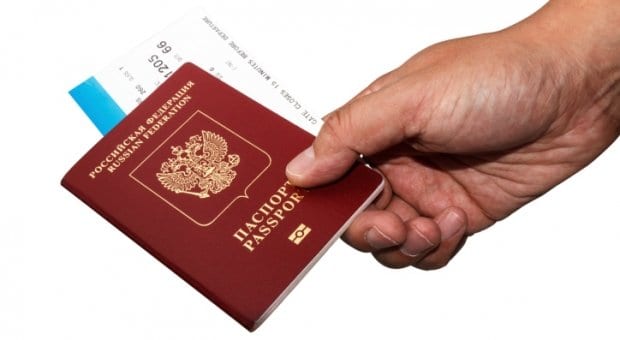Four months after Canada’s immigration minister said the country would favour Russian LGBT asylum seekers, the government has taken no concrete steps to facilitate refugee claims.
Immigration Minister Chris Alexander expressed concerns this summer over the “homosexual propaganda” ban that Russian President Vladimir Putin signed into law in July. Since then, Russian LGBT organizations have reported an increase in homophobic violence.
“Russia has gone down the wrong path in restricting fundamental rights of a significant group in society,” Alexander told reporters in August.
He added that claims “related to this particular issue will of course be looked at very seriously by our very generous system.”
When asked if any changes have been implemented in the four months since Alexander’s remarks, Citizenship and Immigration Canada referred Xtra to the Immigration and Refugee Board, which decides asylum claims but does not make policy decisions.
Immigration lawyers say that current rules make it difficult for LGBT Russians to file claims and that few have done so.
Vancouver lawyer Rob Hughes helped two gay Russian men make successful refugee claims in August and has two other Russian clients who are preparing to file claims.
Xtra reached out to several Canadian refugee lawyers through a popular Ontario mailing list and directly contacted lawyers who specialize in LGBT issues. None reported any Russian claimants fleeing persecution based on sexual orientation or gender identity.
Asylum claims are decided by the Immigration and Refugee Board (IRB), a quasi-judicial body that operates independent of the government. The IRB researches persecution in each country but can’t expedite claims without a change to Canadian immigration law.
A November IRB report notes an uptick in violent homophobic attacks, discrimination from healthcare providers and vaguely written laws used against sexual minorities in Russia.
An IRB spokesperson provided figures of asylum claims made against Russia, which show a drop from 167 claims in 2012 to just 62 as of September 2013. Roughly half the claims decided this year have been successful, though some were initially filed last year.
Refugee claimants don’t always state their reasons for seeking asylum, and some are granted status based on other factors than their original claims. It’s difficult to know how many are sexual minorities.
“All that I can confirm is that there are refugee protection claims referred to the IRB where the claimants have asserted in their initial written narrative that sexual orientation is the basis of their claim against Russia,” wrote the IRB’s Melissa Anderson.
Groups like the Canadian Council for Refugees say it’s only getting harder for people fleeing persecution, including LGBT claimants. As of last December, asylum seekers from countries the government deems generally safe are denied a normal appeal.
Foreigners cannot apply for Canadian refugee status while abroad, unless the UN deems them refugees, which applies only to people who have been exiled from their home countries.
With the exception of being sponsored by a group of Canadians, foreigners have to arrive in Canada before making claims. Russian citizens require visas, and diplomats are instructed not to issue visas to those likely to remain in Canada longer than the time period they apply for.
“Most Russians — including LGBT Russians — who would like to travel to Canada to make refugee claims cannot do so lawfully,” says Sean Rehaag, an Osgoode Hall law professor who specializes in refugee-claims data.
By the end of next year, all Canadian visa applicants will have to get to a visa office in person in order to give fingerprints and photographs of themselves. Advocates say this presents another barrier, as many facing persecution live far from large cities.
Rehaag says it’s also often difficult for asylum claimants who have hidden their sexuality back home to prove they’re not straight.
“The IRB has often been told by the federal courts to avoid drawing on stereotypes in making factual findings about sexual minority identities,” Rehaag says. “But stereotypes continue to show up in sexual minority IRB decisions.”
Rehaag says LGBT claims are among the most difficult for the IRB, which decides whether sexual minorities face persecution without state protection or merely discrimination.
“Especially when we know that the level of state protection provided in countries like Canada is not perfect and that LGBT Canadians continue to experience various types of mistreatment.”

 Why you can trust Xtra
Why you can trust Xtra


